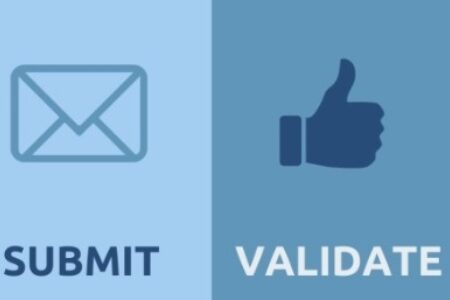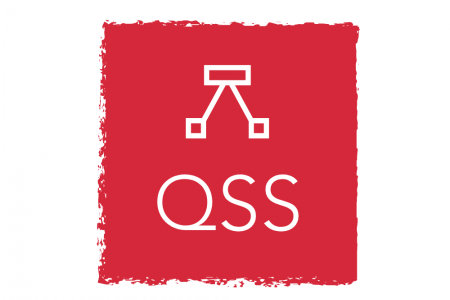Tips for making open access books
We look at seven different ways that academic authors at Leiden University have found to make their books open access, and pass on their tips.
More and more academic books are published as Open Access (OA) making them freely available to read without any payment being necessary. The Directory of Open Access Books (DOAB) already includes more than 42,000 peer-reviewed OA books from around 500 publishers worldwide. These books are integrated into most library catalogues. Research funders increasingly demand that output produced as a result of their funding, and which is published in books, should be published as OA. It is expected that in the future, more and more academics will publish their book OA as a lot of publishers are willing to publish books immediately OA.
In this blog post the Open Access Team from the Centre for Digital Scholarship, Leiden University Libraries, interviewed some Leiden academics about how they went about publishing their books OA. These interviews show what you can do to publish a book OA, and also how you can make a book that is already published accessible by open access. The examples are in no particular order.
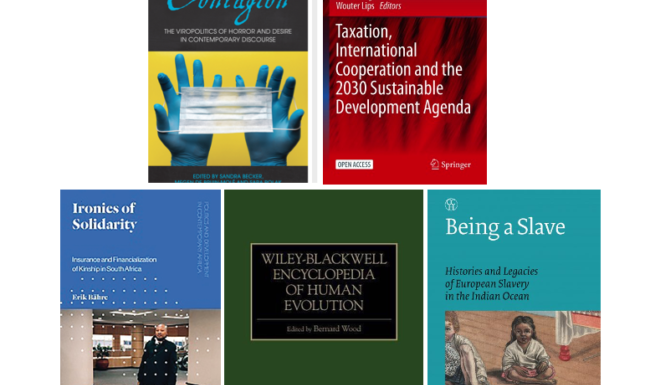

1. Open Access has given my book a second life
Carel Stolker is the former Rector Magnificus & Chairman of the Executive Board, former Dean of the Law Faculty, and Professor emeritus Private Law. He retired in 2021. In 2014 Carel published the book Rethinking the Law School - Education, Research, Outreach and Governance with Cambridge University Press. The book is still relevant for law schools on different continents. The book is about how law faculties across the globe can best be managed. It covers education, research, impact and societal outreach, and governance.
In the beginning the book sold well. Royalties went to the Scholars at Risk organization. After eight years, sales had dropped dramatically. In 2014 making books Open Access was not quite common but nowadays it is. That brought Carel to the idea to give his book a second life by making it Open Access in 2022. The content of the book could still greatly help law faculty deans and administrators in less-privileged countries or working at less-privileged law schools. He contacted the Centre for Digital Scholarship (CDS) with the question how he could make his book Open Access.

The CDS advised Carel to ask permission from Cambridge University Press to make the book Open Access in the Institutional Repository, called Scholary Publications. Cambridge University Press agreed that the book could be made Open Access in the institutional repository. After permission of Cambridge University Press it was easy to make the book Open Access in Scholarly Publications. After the embargo was lifted the Rethinking the Law School became automatically Open Access in the Scholary Publications. Now, after eight years, everyone has free access to publicly funded research that otherwise might not be available to them for financial reasons. Carel and the CDS are now working on a plan to ensure that the open access version of the book is easily findable.
A message that Carel would like to share is that,
" Making this book OA at last is particularly important for law faculty deans, administrators and teachers in less-privileged countries."
2. Open Access in the Leiden Repository
Erik Bähre is Associate Professor at the Institute of Cultural Anthropology and Development Sociology. Erik has been awarded the ERC project Moralising Misfortune: A comparative anthropology of commercial insurance and wanted to publish the results of his research in a book. He contacted the Centre for Digital Scholarship about the ERC requirements for OA.
The ERC's OA requirements (p. 5, step 3) provide two options: it should be published OA and deposited OA in a repository immediately upon publication; or the final peer-reviewed manuscript version can be made OA in a repository (in case of the Social Sciences and Humanities) with a maximum delay of 12 months after official publication. If that is not possible, authors must be able to show best effort (Section 7.3, p. 18 ibid.) to make their book OA.
Erik contacted his publisher during an early stage to discuss the options to make his book OA. They agreed that the book could be made OA in the repository 18 months after publication in the final published version. Last year, the book Ironies of Solidarity: Insurance and Financialization of Kinship in South Africa was published with Zed Books in association with the International African Institute.

After publication, Erik uploaded the file via LUCRIS and Scholarly Publications with an embargo set on 1stJune, 2021. The upload conferred a persistent identifier link from the Leiden Repository to the book that he could share with the ERC. With that he fulfilled the funder requirements. After the 1st of June, the book will be automatically OA in the Leiden Repository.
The most important message that Erik would like to share is that,
"Our research practices can easily reproduce global inequalities, even when we do not want to do so. This OA arrangement is crucial to sharing my research, especially with South Africans without whom this study would not have been possible."
3. Open access with an NWO OA Grant
Sara Polak is a University Lecturer at the Leiden University Centre for the Arts in Society. Sara has made use of the NWO Open Access Books fund in order to make an open access publication of her book, Embodying Contagion, edited with Megen de Bruin-Molé and Sandra Becker.
She is very enthusiastic about this opportunity:
“It is great fun to publish an Open Access book. I found NWO extremely helpful in the process - clearly there was a real effort to make the application as easy as possible, and it also went very quickly”.
Project leaders or co-applicants of awarded NWO research projects can apply for funding for the costs of OA publishing of academic books that result from NWO funding.
Sara received an NWO Rubicon Scholarship for research at Justus-Liebig Universität Giessen in 2016-2017 but didn’t apply for the NWO OA Books fund until 2020. She was in time, because it is possible to submit an application to the OA Books fund for a project's publication up to five years after that project has ended. It is also important to know that you can only apply for funding from this instrument when you already have a publishing contract, the manuscript has passed the peer-review process, and the manuscript is ready to be put into production by the publisher.

Her publisher was immediately enthusiastic, but the budget was a bit tight. A maximum of 10,000 Euros is available per research project for the OA publication of a peer-reviewed academic book. The costs of OA book publishing may vary from 7,000 to 15,000 Euros per book.
By coincidence, the subject of the book, contagion, is very relevant and topical during the corona pandemic, and that also made it particularly attractive to have this book published in OA. It concerns a subject that almost everyone is thinking about now and that can be opened up a little better this way.
Sara's tip:
"Because the budget we had available was on the low side for the publisher, as editors we made a trade-off: we gave up the right of all authors to receive a complimentary copy of the book. However, we only discovered this at a very late stage (due to a miscommunication with the publisher). I still think 10,000 Euros is a realistic amount, but I would advise future applicants to pay close attention to the small print."
4. Digitization of an out-of-print work
Annemieke van Drenth is Assistant Professor at Education and Child Studies in the Faculty of Social and Behavioural Sciences. In 1999 she and Francisca de Haan published The Rise of Caring Power. Elizabeth Fry and Josephine Butler in Britain and the Netherlands with Amsterdam University Press. The book is still in demand, but has been out-of-print and sold out for a long time. The authors decided they would like to provide long-term digital access so that it could more easily be found and read; this is of particular importance as the authors are currently working on a new publication that refers to this book.
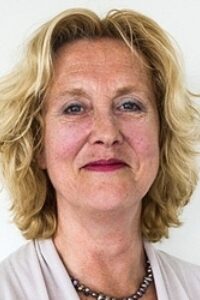
According to the publisher, they no longer had a rights claim on the book so the authors were free to put the book online. The problem, however, was that neither the publisher nor the authors had a digital file of the work. The publisher suggested a solution: “to get hold of a printed copy […] and give it to the University Libraries, Leiden," then to "[…] cut it up and scan the sheets," adding that, "You do not have to ask permission from Amsterdam University Press for that.”
Very recently, Leiden University Libraries started offering a scan-on-demand service. Normally this service is used by researchers who wish to perform data- & text-mining on a document. By coincidence, a number of works were ready for digitization for that purpose and so Annemieke's book, The Rise of Caring Power, could be added to this batch. Some costs were necessary to pay the digitization company, but luckily the authors found some budget to pay this fee.
A metadata record had already been registered in the Leiden Current Research Information System (LUCRIS) and once the files were received, the digitized version could easily be uploaded into the Leiden Repository Scholarly Publications. The book is now visible worldwide from the Leiden Repository in all kinds of international networks and also, for instance, in Google Scholar. Moreover, the book has received a unique, persistent URL and is digitally archived at the Royal (National) Library of the Netherlands, so that it remains permanently accessible and can be easily cited.
5. From print to dynamic, OA 'Encyclopedia 2.0'
In 2011, Bernard Wood published the two-volume Encyclopedia of Human Evolution with Wiley. While there is a companion website, www.woodhumanevolution.com, only additional references and updates from this comprehensive encyclopedia are currently freely available and not the content itself.
Wood asked Wiley to return the copyright to him, and they did. The stable, formatted PDF prepared by Wiley Blackwell is available and could be uploaded to the repository and coupled with a website that can be updated.
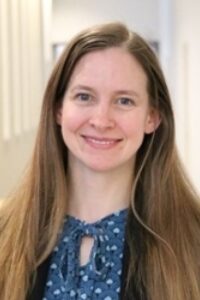
At the moment the data is being migrated to an online environment. When the migration and design are finished, the book will be OA through its own website and it will be possible to make updates.
Amanda Henry, assistant professor at the Faculty of Archaeology, assisted in making the Encyclopedia and continues to push for it to be open access and for making the content more dynamic.
The most important message that Amanda would like to share is that,
“Reference material, such as the Encyclopedia of Human Evolution, always needs updating. By making this resource available online, open access, and update-able, we make it available to many more scholars and ensure it's kept current.”
6. Books in great demand can be made delayed open access with the publisher
Alicia Schrikker is a Senior University Lecturer at the Institute for History in the Faculty of Humanities. Two of her books were made OA through the Knowledge Unlatched project: in 2020 Being a Slave (edited together with Nira Wickramesinghe), and in 2017 World History: a genealogy (compiled together with Carolien Stolte). The application to make the books OA went through the publisher Leiden University Press (LUP).
Alicia is lucky that in both cases her titles (together with many others) were selected to be published OA. Every year, university libraries worldwide make a selection from the annual backlist they receive from Knowledge Unlatched. Information about this and all the publishers involved is on the Knowledge Unlatched website.
You could ask your publisher how this process works. Alicia says,
“In both cases, my co-authors and I were very happy with the result, because it means that access worldwide has increased enormously.”
The books can be found OA in the OAPEN library, in the Directory of Open Access Books, and in many library catalogues.
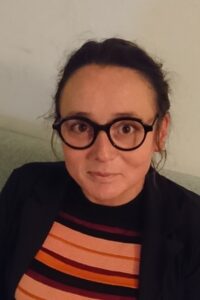
“This is especially important for countries in the 'global south' where access to these kinds of publications would be limited in other ways, due to the limited resources of university libraries in many countries." she adds, "Especially for a book like 'Being a Slave', which is about the experiences of people who lived in slavery in the 18th and 19th century and its legacy in various parts of Asia and Southern Africa, it is important that it is also accessible in the regions themselves."
Alicia believes that, "The developments with Open Access publishing are fantastic in that respect and we should not underestimate them. I myself am on the editorial board of a journal (BMGN – Low Countries Historical Review) that went completely open access at a very early stage, and the effects of this have been great: the readership of the journal has broadened significantly. I don't think that would have happened otherwise. We also get more submissions from different parts of the world. So all in all, my experiences are very positive.”
The most important message that Alicia would like to share is that,
“Reading a book digitally is often more cursory. I still prefer to read monographs physically, also because online you tend to lose the feeling of the book's structure. Most OA books are also available in print and look nice too!”
7. Open access with an ERC Grant
Irma Mosquera Valderrama is Associate Professor at the Institute of Tax Law and Economics. She has been awarded an ERC grant for A New Model of Global Governance in International Tax Law Making. In her ERC grant application she included a budget for open access of 26,000 Euros. With this budget she was able to publish Taxation, International Cooperation and the 2030 Sustainable Development Agenda with Springer Nature. The book was edited together with Dries Lesage and Wouter Lips.
It has cost Irma 13,000 Euros to publish the book OA and in her view, this was not that expensive. Publishing OA with Springer was easy: they have two type of contracts, so everything is well arranged. It has also been double-blind peer-reviewed, which is good for the authors.
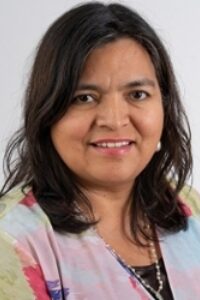
The whole process took almost two years, so it has taken some time, but what is nice is that the book has been downloaded more than 9,000 times by academia, and policy makers, all around the world.
Irma says, “I have achieved my objective!” and the most important message she would like to share is to;
”Make sure that you have good budget for open access, because otherwise you may only be able to produce one book, and also check with your library to see if they have arrangements with other publishers - we also published an article open access with Journal of Economic Law, and that was made possible due to the library cooperation.”
Do you have good practices you would like to share?
If so, please let us know!
If you’re interested in knowing more about open access book publishing, you might find this recent blog post from Martin Paul Eve interesting, “What’s happening at the moment with open-access books?” which compares different models for open access book publishing.



